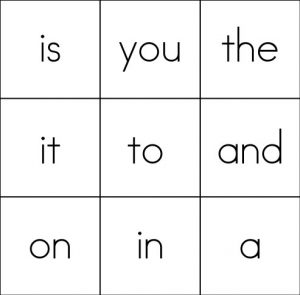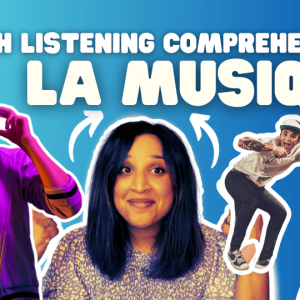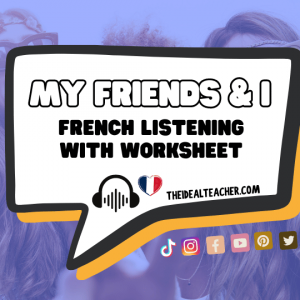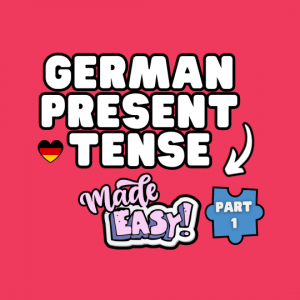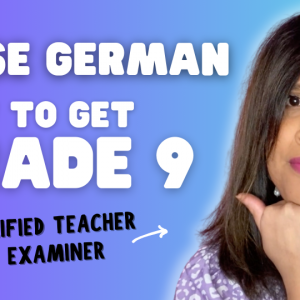 Fun Language Games for The MFL Classroom To Engage Learners
Fun Language Games for The MFL Classroom To Engage Learners
Games are defined as ‘activities that one engages in for amusement or fun’. Nowadays, when learners think of language lessons, they don’t usually synonymy them with the expression fun. So, why not change their thinking? You can do this, fairly simply, by including some low-prep, fun language games for the MFL classroom into your teaching repertoire.
Josh Beattie, Assistant Director at the Department for Education stated in 2018 that not enough pupils are taking languages, because “they either consider them boring, dislike their teachers or think they are too difficult.”
Although I definitely don’t think that teachers have to have language games in their classrooms for learning and progression, I do feel that they could be included to engage students to find learning the language easier, fun and debunk the common belief among many students that languages are boring. Remember, games are not easy, they take concentration and time, so don’t feel that incorporating games into your MFL classroom will dumb down your lessons!
Even if you don’t believe you have time for games for the MFL classroom, you will have time for these low-prep and no-prep fun games. Share/save this post with all of these fun activities for MFL and give them a go!
Fun Games for MFL Classrooms
BEFORE YOU READ ON, HAVE YOU SUBSCRIBED TO MY YOUTUBE CHANNEL FOR MORE FREE & USEFUL FRENCH AND GERMAN CONTENT?
1. Picture Wheel (Low-Prep £)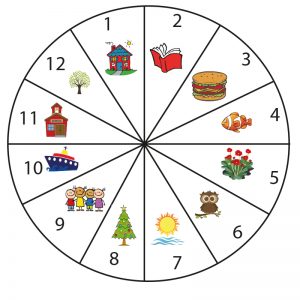
Resources: 25 Dice or Foam Dice
Optional: French Reward Stickers, German Reward Stickers, Spanish Reward Stickers, English Reward Stickers
To Improve : Speaking, writing, vocabulary, grammar
Fun Element: Using dice and a competitive element
Instructions for this Fun Low-Prep MFL Game:
a) Draw a wheel on the board board with pictures (1-6 or 1-12) to represent vocabulary from a recent lesson with a number on each. The image above is an illustration, but this can easily be replicated with hand-drawn imagery on the whiteboard.
b) In pairs, students take it in turns to throw one or two dice or foam dice and must come up with a sentence for that picture, depending on the number they roll.
c) Partner must award points for the sentence, depending on level of creativity and accuracy, i.e. 3 for creative and accurate, 2 for creative but with a mistake, 1 for understood, but 2+ issues.
d) The partner can then also add to the sentence, which if the first player agrees is accurate, receives a point too.
e) Keep a tally score on points and award a sticker to the students with the highest scores.
EXTENSION: roll a second time, to add extra conditions, i.e. 1 – present / 2 – past / 3 – future / 4 – conditional / 5 – third person / 6 – imperfect). This is the perfect way to add an element of challenge to your fun games for the MFL classroom.
 2. Human Pac-man (No-Prep)
2. Human Pac-man (No-Prep)
Resources: Space!
Skills Focus: Speaking, listening, translation, vocabulary
Fun Part: The students move around the classroom and ‘eat’ the other members of the class!
Instructions:
a) Students spread out around the room and are instructed on the rules (no talking when teacher/others are talking etc)
b) Teacher advises a number of steps, says a word or sentences in TL or English for translation. Students put hands up and one gets picked.
c) If the student translates correctly, they get to move than many steps and ‘eat’ people along the way, by gently tapping them. These students must sit down. However, they can get back in the game if no other students can translate a future word or sentence, by putting their hand up with another chance to get picked.
d) Either teacher or the current ‘pac man’ gives another sentence for translation. Repeat until time is up!
EXTENSION: The students who are out could also create the sentences for the rest of the group to translate to add an element of further challenge to your MFL games for the language classroom.
 3. Strip Bingo (No-Prep Language Game for the MFL Classroom)
3. Strip Bingo (No-Prep Language Game for the MFL Classroom)
Resources: A4 landscape paper, cut into five-six columns, enough for one sheet per student and the bin (remember to emphasise that all rubbish goes in the bin at the end of the activity!)
Development Area: Vocabulary, Listening
Fun Element: Ripping strips of paper, competitive element
Instructions:
a) Cut a landscape A4 sheet into 5-6 columns
b) Give one piece to each student and ask them to divide it (portrait) into half, half again and half again, so they are left with eight creased boxes.
c) Choose a theme and share this with your students, i.e. ‘food’. Each student must write different foods in English (which they also know in TL) into each of the eight boxes.
d) The teacher (or a student) reads out from a list of previously taught food items in the target language while each pupil concentrates on two words at a time; the first on the sheet and the last one.
e) When the word is heard, the pupil needs to tear off the word from that list. Another word has taken the first (or last) place on this list and step d) must be repeated.
f) Keep repeating words on the list to get a winner, who is the student with no words left first.
EXTENSION: You could do the same with sentences written in TL, but you still say keywords. If the keyword is contained in the strip, the student can rip it off.
 4. Hangman (No-Prep Game for the MFL Classroom)
4. Hangman (No-Prep Game for the MFL Classroom)
Resources Required: Whiteboard and Berol dry wipe marker pens (because these last for ages!) could also be done on mini whiteboards
Skills: Vocabulary, Letters in TL Practice
Fun Bit: Writing on the whiteboard, obviously!
Grouping: whole group, small groups
Instructions:
- Pick a theme and share with students, choose a player to begin
- They must write the number of letters contained in the word and represent each letter with a line.
- The rest of the class or group must guess the word, by guessing the letters
- Winner gets 5 points and has the opportunity to do step 2 and lead the game.
 5. Memory Game (No-Prep)
5. Memory Game (No-Prep)
You must have come across the game, ‘I went to the supermarket and bought…’ or ‘Ready for my holiday, I packed…’ This is the idea of this MFL game!
Resources Required: Nothing
Skills / Areas of development: speaking, vocabulary, listening
Fun Element: it’s a game you play with family and in the car, so the students know it’s a game!
Group Format: small groups
Instructions:
1. Split students up into small groups 4-6 would be ideal.
2. Share instructions and a theme, i.e. food, verbs, holidays etc. Advise students must remain on theme throughout the game.
3. One student begins and says a variation of ‘I went to the supermarket and bought…’ or ‘In my suitcase, I packed…’ in Target Language and adds an item, i.e. ‘…. an apple’, the second person must repeat what student one said and then add an extra item.
4. Repeat step 3, until someone can’t remember what has been said. The others are the winners!
A perfect game for the MFL classroom, as it develops pronunciation, vocabulary and allows students to speak in a non-threatening, but somewhat spontaneous manner.
 6. Happy and Sad Emoji ‘Speaking’ Game (Minimal-Prep MFL Game)
6. Happy and Sad Emoji ‘Speaking’ Game (Minimal-Prep MFL Game)
Resources Required: Happy and Sad Emojis MFL Game – please note, this won’t download in internet explorer, so please use another browser , mini whiteboards, pens and rubbers
Skills / Areas of development: speaking, translation, vocabulary, writing
Fun Element: there are emojis involved, of course it’s going to be fun!
Group Format: two teams
Instructions:
1. Download the Happy and Sad Emojis MFL Game PPT
2. Prepare a quick list of words or sentences for translation OR questions for speaking/writing
3. Put students into two teams, give each team 15 points to start and then choose an individual from the first team to select a number in TL on the PPT.
4. Share a question in TL to answer in TL, a sentence in TL or a sentence in English for translation. Give students a set time to answer individually on their mini whiteboards, then pair and share for a set amount of time. Encourage updates and corrections through the discussions.
5. Choose another member from that team to stand up and show their answer. Click on the student’s original number on the PPT. If it returns a sad face and they got the answer right, the team loses a point. If they get a happy face, they receive two points to add to their total.
6. Swap teams and repeat until the time is up, or 15 squares have been clicked on.
Why not add this to your teaching repertoire as fun activities for MFL? It’s an engaging language game for the MFL classroom which gets so many people involved. It allows for think, pair and share too. I realise it’s not normal to lose points if a student gets an answer right. However, I am trying to make things interesting with this game!
 7. Scrabble ‘Vocabulary’ Game (No-Prep MFL Game)
7. Scrabble ‘Vocabulary’ Game (No-Prep MFL Game)
Resources: Powerpoint, pens and paper
Skill: Vocabulary, pronunciation
Group Format: individually, pairs, small groups
Instructions:
1. Give students a theme, i.e. music, film, technology, home etc.
2. Advise that the aim of the activity is to create words in the target language, related to the theme you have provided within a time limit. Each team will get points for the value of the letters in that word.
3. The winners will be the students who:
a) have the most words related to the topic
b) collect the most points
4. Share the rules with the students:
– words must contain 3+ letters
– words must be real ‘German/French/Spanish/English’ words
– words cannot be proper nouns (names of places/people)
– avoid shouting out / looking at others’ work – marks may be deducted
– teacher’s say is final
5. Project the scrabble board onto the screen and set the time limit (3/5/7 minutes usually works well) using a bomb count down clock
6. When time is up, get students to swap paper and use a different coloured pen to mark in groups, help where necessary.
7. Share words with common errors on the board for correction and add the best words related to the topic for students to copy into their books
8. Allow students to tally points and write on the bottom.
9. Take the sheets in and announce winners.
Scrabble is a no-prep vocabulary recall or revision game that gets the students working in pairs or small groups to improve their vocabulary and pronunciation. If you are looking for more language games with a vocabulary focus, check out those in the link!
 8. Pass The Ticking Time Bomb Game (Low-Prep Game for the MFL Classroom – £)
8. Pass The Ticking Time Bomb Game (Low-Prep Game for the MFL Classroom – £)
Resources Required: 1-3 ticking bomb toys, a PPT list of sentences for translation OR a pre-prepared theme
Skills / Areas of Development: vocabulary, speaking, translation, grammar
Fun Element: passing the ticking time bomb toy around, of course!
Group Format: teams of approx. 10 people
Instructions:
- Give each group a set ticking time bomb toy, which ‘explodes’, making a sound at random intervals and advise each student has three lives.
- Give the groups a sentence on the board to translate orally into TL, or a theme that they must add a word to each pass to create sentences. i.e.
Personal Descriptions: Ich – heisse – Norman – und – ich – wohne – mit – meiner – Familie – in – Chepstow … - If them bomb toy explodes whilst in their possession, they lose a life.
- Continue for a set time, or until there is an overall winner
 9. Two Word Tango Speaking Game (No-Prep MFL Game – £)
9. Two Word Tango Speaking Game (No-Prep MFL Game – £)
Resources: Two Word Tango MFL Game Audio File MP3 music file from the Chris Moyle’s BBC Radio 1 show, mini whiteboards, whiteboard pens and rubbers
Skills / Areas of Development: vocabulary, speaking, translation, grammar
Fun Element: passing the ticking time bomb toy around and writing on the mini whiteboards
Group Format: teams of approx. 10 people
Instructions:
- Choose a theme (food/clothes/animals etc) and each time there’s a small gap in the song between the tune, say a word or two words related to the theme.
- As the game progresses, the song speeds up making both the gaps and the length between the gaps shorter.
- The aim is to continue taking it in turns to say a word related to the theme between the gaps.
- The first person to ‘fluff up’ is out, but they must continue the game by writing what the others say on mini whiteboards to remain involved.
- Re-start from 1 once a second person fluffs up.
Need an example of how this would work with the music, check out Chris Moyle’s show from 2012.
 10. Pass It Forward (Low-Prep Language Classroom Game £)
10. Pass It Forward (Low-Prep Language Classroom Game £)
Resources: large magnetic whiteboard, 1 x magnet per group, 10-15 images per group related to your topic
Skills / Areas of Development: writing, grammar, vocabulary, sentence structure
Fun Element: using a magnet (?!) and competitive element
Group Format: 4-5 students sitting behind each other on desks, facing the magnetic whiteboard
Instructions:
1. Print out 10-15 images related to whatever topic you like and place on the back table.
2. Describe something from one of the images, i.e. ‘das blaue Hemd’, or for more advanced classes in a sentence or mini paragraph.
3. The person on the back table must choose correct image and pass it forward to the person nearest whiteboard to stick on the whiteboard.
4. First team to put it on correctly and sit down again wins.
 11. Twenty-One (No-Prep Language Classroom Game)
11. Twenty-One (No-Prep Language Classroom Game)
I saw this language game being played in my QTS year as a time filler before the end of the lesson, getting students to work in groups and revising numbers. This fun game for MFL classrooms lends itself to languages very well.
Resources: none
Skills / Areas of Development: pronunciation, revision of numbers
Fun Element: standing up, competitive
Group Format: 6-12 students standing in a circle facing each other
Instructions:
1. Students stand in a circle and the first person starts counting upwards consecutively from 1 in the target language. They can say one, two or three numbers, i.e. one-two
2. The next student has to go up consecutively, starting from the next number, again either saying one to three numbers, i.e. three-four-five
3. Repeat step 2 and the person who ends up having to say ’21’ is out.
The excellent thing about this language game for the MFL classroom, is that you can do this to revise any set of numbers. For example, there’s nothing stopping you going up to 50, 100 or 1,000 even! Perhaps just allow the learners to say up to ten numbers, rather than just three?
 12. Just A Minute (No-Prep Language Classroom Game)
12. Just A Minute (No-Prep Language Classroom Game)
This is a classic no prep game for the MFL classroom, but definitely one not to be discounted!
Resources: timer per group or a visible wall clock with a second hand
Skills / Areas of Development: speaking
Fun Element: using a timer
Group Format: work in pairs or threes
Instructions:
1. Students sit in groups, with each student having 15 points to begin.
2. The aim of the game is for students to take it in turns to talk for one minute (less / longer depending on the students’ levels) about different topics. These topics could be provided by the teacher, or by the other students in the class
3. If a student speaks for one minute without hesitation or using English, award 3 points, if they have some hesitation, award 1 point and -1 if they can’t talk for a minute.
The is a wonderful no-prep game that really gets students talking spontaneously.
13. Bingo (No-Prep MFL Game) 
If you’re short on time, but want a game to test students on vocabulary, as a starter or as a plenary, get a game of bingo underway in the TL.
Resources: A5 sheets of paper (optional: stickers)
Skills / Areas of Development: vocabulary recall
Fun Element: it’s bingo…
Group Format: individually
Instructions:
1. Give all students a sheet of paper and ask them to fold it into 8 or 9 squares
2. Name a theme and the students must write a different word related to that theme in each ‘square’
3. Either the teacher, or individual students can shout out words, which students must tick off as they are heard. Try to include high frequency, useful and more complex vocabulary and get translations, or sentences as you go along from individuals.
4. Award prizes (merits / stickers etc) for a line across, a line down, as well as a full house.
Bingo is the perfect vocabulary recall game for the language classroom, which can also be used to improve vocabulary, develop pronunciation, speaking and translation!
PLEASE NOTE: THIS POST IS A WORK IN PROGRESS AND MORE GAMES FOR THE MFL CLASSROOM ARE BEING ADDED AS WE SPEAK!
SIGN UP TO MY YOUTUBE CHANNEL FOR MORE FREE & USEFUL FRENCH AND GERMAN CONTENT?
—
So, incorporate fun language games that are low-prep into your teaching practice. Make the study of languages an enjoyable experience for yourself and the students with a few additional games for the MFL classroom in your teaching repertoire!
References:
Mackay. R., (2013), Games as Educational Tools: https://news.stanford.edu/2013/03/01/games-education-tool-030113/
Stauffenberg, S., (2018), EBacc ‘not had much effect’ on MFL uptake: https://schoolsweek.co.uk/ebacc-not-had-much-effect-on-mfl-uptake-admits-dfe-official/
JOIN ME ON MY SOCIALS FOR MORE FAB TEACHING CONTENT >>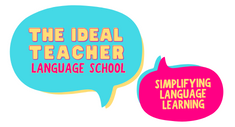
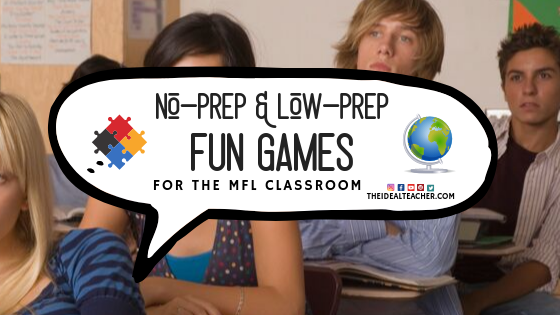
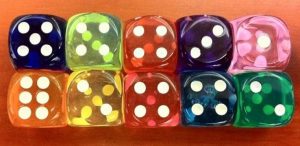 Fun Language Games for The MFL Classroom To Engage Learners
Fun Language Games for The MFL Classroom To Engage Learners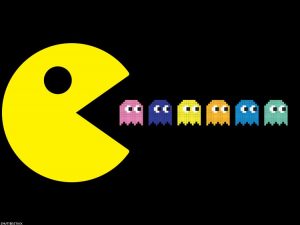 2. Human Pac-man (No-Prep)
2. Human Pac-man (No-Prep)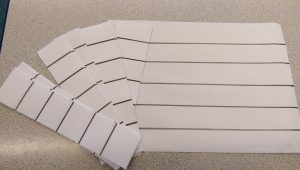 3. Strip Bingo (No-Prep Language Game for the MFL Classroom)
3. Strip Bingo (No-Prep Language Game for the MFL Classroom)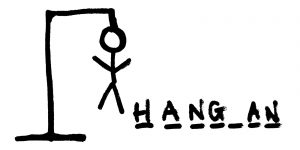 4. Hangman (No-Prep Game for the MFL Classroom)
4. Hangman (No-Prep Game for the MFL Classroom) 5. Memory Game (No-Prep)
5. Memory Game (No-Prep)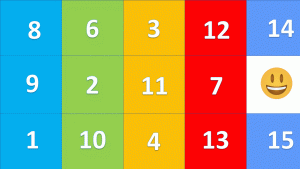 6. Happy and Sad Emoji ‘Speaking’ Game (Minimal-Prep MFL Game)
6. Happy and Sad Emoji ‘Speaking’ Game (Minimal-Prep MFL Game)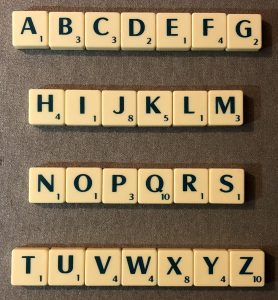 7. Scrabble ‘Vocabulary’ Game (No-Prep MFL Game)
7. Scrabble ‘Vocabulary’ Game (No-Prep MFL Game)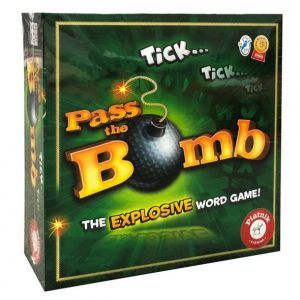 8. Pass The Ticking Time Bomb Game (Low-Prep Game for the MFL Classroom – £)
8. Pass The Ticking Time Bomb Game (Low-Prep Game for the MFL Classroom – £) 9. Two Word Tango Speaking Game (No-Prep MFL Game – £)
9. Two Word Tango Speaking Game (No-Prep MFL Game – £)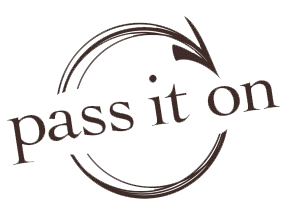 10. Pass It Forward (Low-Prep Language Classroom Game £)
10. Pass It Forward (Low-Prep Language Classroom Game £)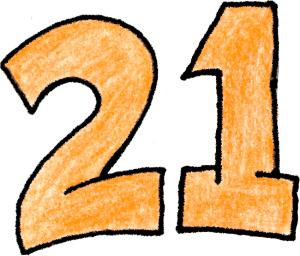 11. Twenty-One (No-Prep Language Classroom Game)
11. Twenty-One (No-Prep Language Classroom Game)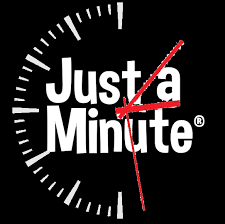 12. Just A Minute (No-Prep Language Classroom Game)
12. Just A Minute (No-Prep Language Classroom Game)